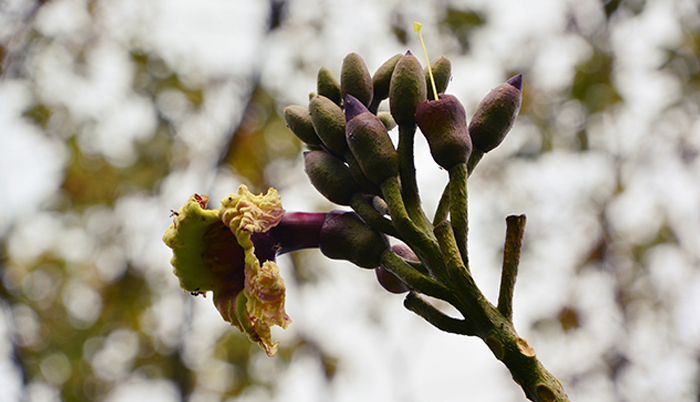![]() Home > Health
Home > Health
A Traditional Plant Native To Thailand Effectively Manages Obesity, According To New Study

![]() April 5th, 2022 | 15:35 PM |
April 5th, 2022 | 15:35 PM | ![]() 250 views
250 views
NATURALNEWS
Broken bones tree (Oroxylum indicum), a traditional plant native to Thailand, can potentially be used to manage obesity, according to a study published in the journal BMC Complementary and Alternative Medicine.
For the study, researchers from Suranaree University of Technology in Thailand derived the extract of broken bones from the fruit pods of the plant. They looked at the effects of broken bones plant extract on the adipogenic and biomolecular change in 3T3-L1 adipocytes. They used the cell line 3T3-L1 to establish the potential toxic effects of broken bones plant extract during adipogenesis, the differentiation of pre-adipocytes into adipocytes.
In addition, the researchers analyzed the inhibitory effect of broken bones plant extract on lipid accumulation in 3T3-L1 cells. They also assessed the chemical components of broken bones plant extract derived from the fruit pods of the plant.
Based on the results, the broken bones plant extract was composed of flavonoids, alkaloids, steroids, glycosides, and tannins. Results also revealed that the plant extract prevented adipogenesis and lipid accumulation in 3T3-L1 cells. Furthermore, the plant extract potential to inhibit an enzyme associated with fat absorption.
The researchers concluded that their findings suggested that broken bones plant extract derived from the fruit pods of the plant contains essential properties that may be used for the management of obesity.
Obesity and how to prevent it
Obesity is a worldwide problem. The number of people who are obese worldwide has nearly tripled since 1975, according to the World Health Organization (WHO). Based on estimates, more than 1.9 billion adults were overweight in 2016. Of these, more than 650 million were obese.
In children, an estimated 41 million children under five years old were either overweight or obese, while more than 340 million children and teens aged between five and 19 were overweight or obese in 2016.
Obese and overweight is caused by an energy imbalance between calories consumed and calories used up. This imbalance is commonly due to an increased intake of energy-dense foods that are high in fat; and the lack of physical activity because of the increasingly sedentary nature of numerous forms of work, advancing modes of transportation, and increasing urbanization.
Overweight and obesity come with health risks. In fact, having an increased body mass index (BMI) is a great risk factor for noncommunicable diseases, such as cardiovascular diseases; diabetes; musculoskeletal disorders, especially osteoarthritis; and certain cancers, such as breast, colon, endometrial, gallbladder, liver, kidney, ovarian, and prostate. Furthermore, as BMI increases, the risk for these diseases also increases.
Fortunately, overweight and obesity are largely preventable. People can limit their energy intake from total fats and sugars; eat more fruits, vegetables, legumes, whole grains, and nuts; and engage in regular physical activity (at least 150 minutes each week for adults and 60 minutes a day for children).
The society also plays a role in the prevention and reduction of obesity. The society needs to support the individuals in following the suggestions above. This can be done through proper and sustained implementation of policies that make regular physical activity and healthier dietary choices available, affordable, and easily accessible to everyone.
In addition, the food industry can also contribute to the prevention and reduction of obesity. The food industry can promote healthy diets by decreasing the fat, sugar, and salt content of processed foods; ensuring the availability and affordability of healthy and nutritious food choices; limiting marketing of foods high in sugars, salt, and fats, particularly foods targeted to children and teens; and ensuring that health food and supporting regular physical activity practice in the workplace.
Source:
courtesy of NATURALNEWS
by Michelle Simmons
If you have any stories or news that you would like to share with the global online community, please feel free to share it with us by contacting us directly at [email protected]